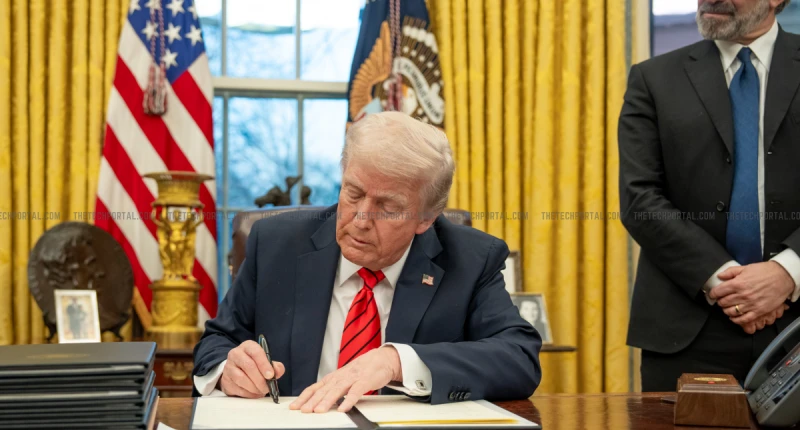US President Donald Trump has threatened to impose a new round of tariffs and export restrictions, this time, on countries that have implemented or are considering digital services taxes (DSTs) on American tech companies. The announcement, delivered via social media, accused these nations of discriminatory practices that target US tech firms while exempting major Chinese corporations.
“With this TRUTH, I put all Countries with Digital Taxes, Legislation, Rules, or Regulations, on notice that unless these discriminatory actions are removed, I, as President of the United States, will impose substantial additional Tariffs on that Country’s Exports to the U.S.A., and institute Export restrictions on our Highly Protected Technology and Chips,” Trump wrote in his post.
The administration’s concerns are centered on levies applied to revenue from social media platforms, search engines, and online marketplaces. For example, the UK imposes a 2% DST on companies with global revenues exceeding £500 million and UK revenues above £25 million. The threshold primarily affects large American firms, while most Chinese companies remain below the criteria. Proponents of DSTs argue that the taxes address companies generating revenue from local users without a major physical presence. The Trump administration, however, views such measures as punitive actions targeting US-based technology providers.
The threat of tariffs and export controls comes alongside ongoing international efforts led by the Organization for Economic Cooperation and Development (OECD) to create a unified global tax framework. The OECD’s Pillar One proposal seeks to replace individual countries’ digital taxes with a system for allocating and taxing multinational corporate profits. Negotiations have been slow, with a final agreement still pending.
Despite this, the EU has maintained that its Digital Markets Act and Digital Services Act remain non-negotiable. These regulations establish rules for online content and constrain the operations of major technology firms, and have long been viewed by the US as measures that disadvantage American companies. The EU has indicated that these laws will continue to serve as leverage in future trade discussions. Similarly, in June, Canada rescinded its digital services tax following the suspension of trade negotiations with the US.
Trump’s statement referenced “export restrictions on Highly Protected Technology and Chips,” signaling the possible use of national security tools in the context of trade disputes. Such measures could restrict access to American-made components, including advanced semiconductors and software from companies such as Nvidia and Qualcomm, which are critical for artificial intelligence, 5G infrastructure, and other technology sectors. Countries reliant on these imports, including Germany, could face disruptions in key industries and be forced to reconsider supply chain arrangements.
The economic fallout of new tariffs are significant. The implementation of new tariffs or export restrictions could prompt retaliatory measures from affected countries, including reciprocal tariffs on US exports, restrictions on American technology companies operating abroad, and adjustments to digital tax policies. In addition to this, global supply chains, particularly in semiconductors, cloud computing, and telecommunications, may be disrupted, leading to increased costs and delays for manufacturers and service providers, while companies reliant on American high-tech components could accelerate diversification strategies, sourcing materials from non-US suppliers or investing in domestic alternatives. Diplomatic relations between the US and trading partners, including the EU, the UK, and other DST-implementing nations, may experience increased tension as well.
The Tech Portal is published by Blue Box Media Private Limited. Our investors have no influence over our reporting. Read our full Ownership and Funding Disclosure →






